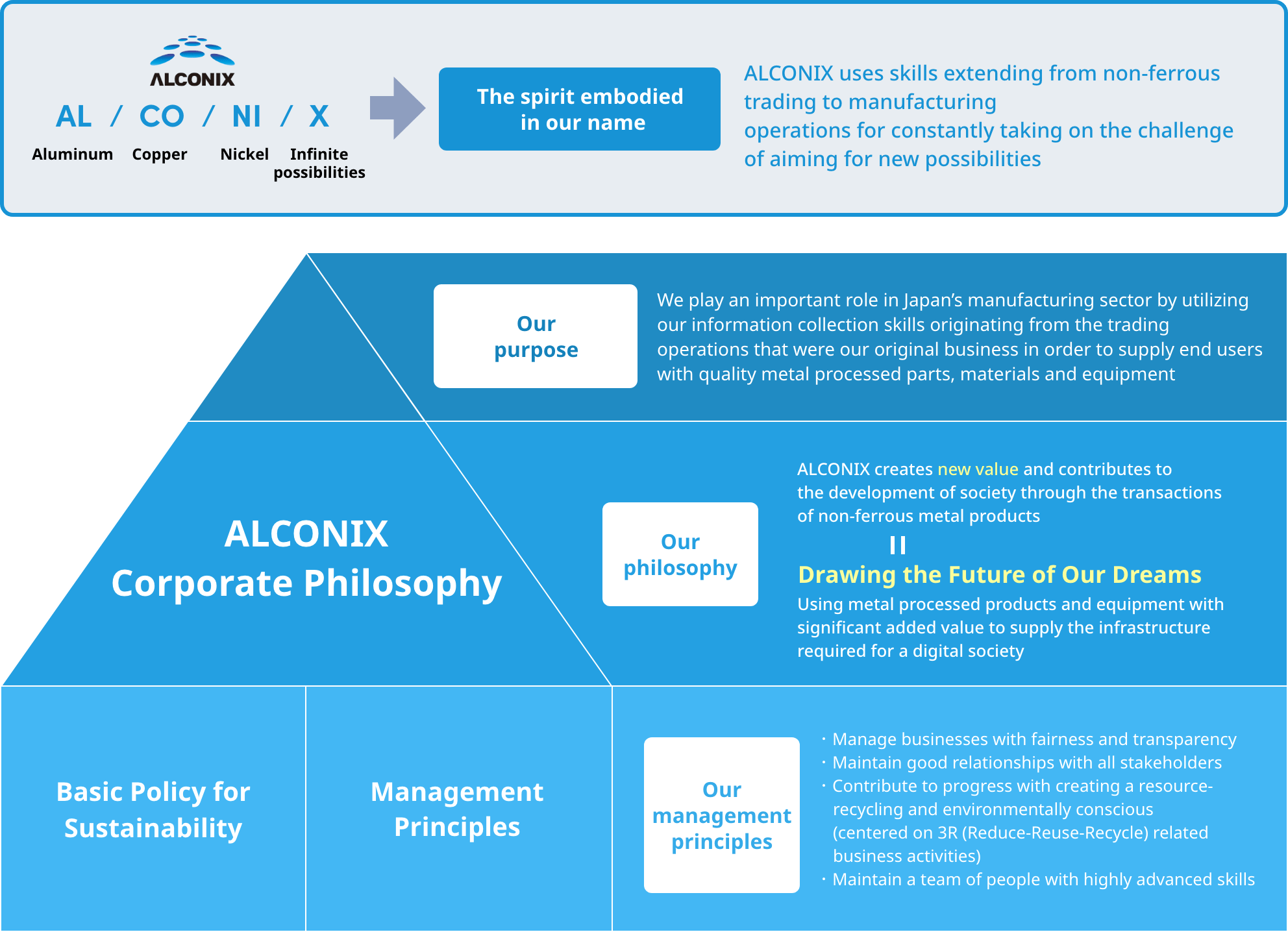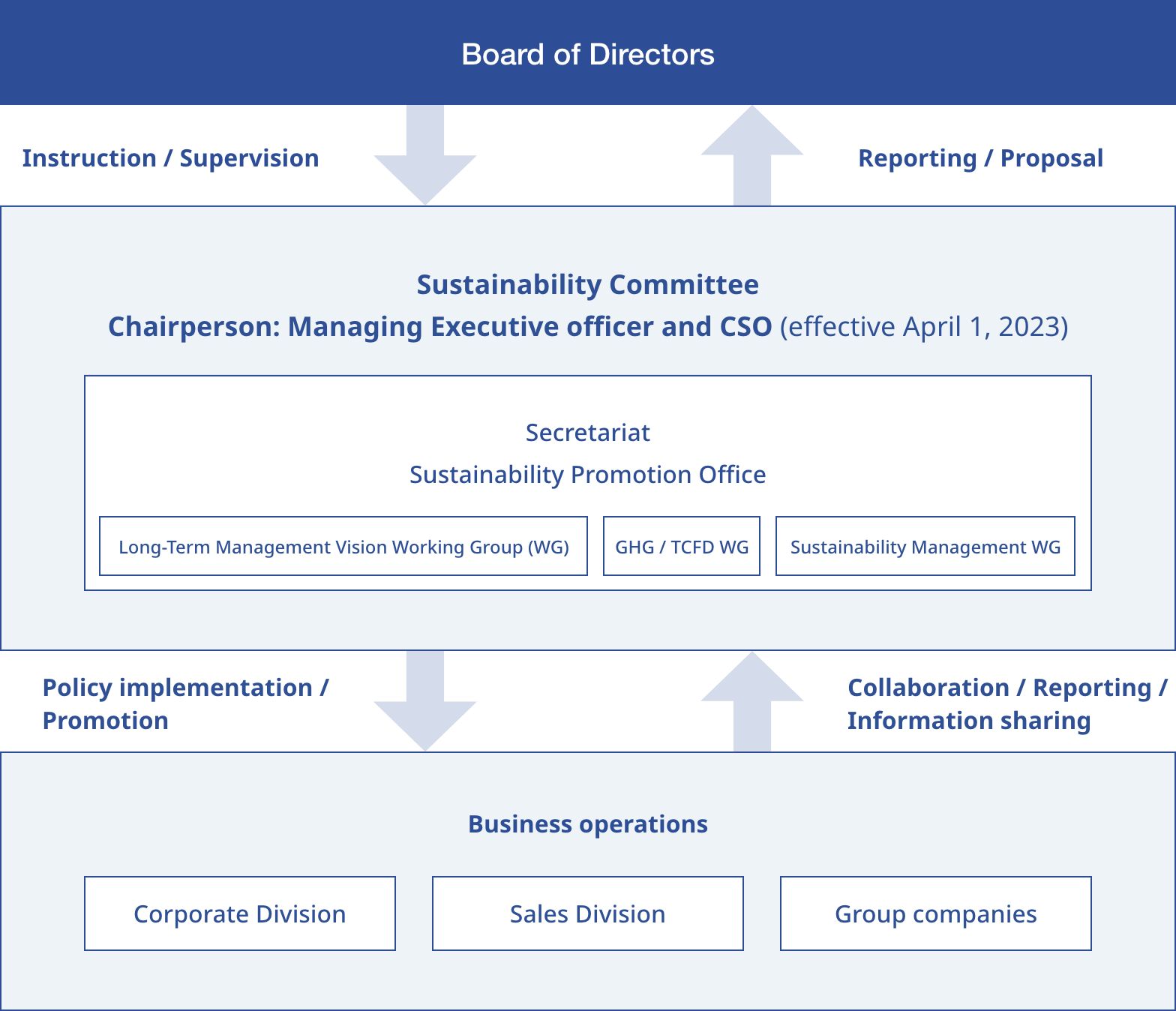- TOP
- Sustainability
- Basic Policy for Sustainability
Basic Policy for Sustainability
Basic Policy for Sustainability
Issues currently facing the international community, such as climate change and other environmental concerns, geopolitical risks, and societal crises including human rights abuses, are becoming increasingly complex and serious. The ALCONIX Group recognizes the importance of these issues and believes that it can resolve social issues, generate sustainable growth in its corporate value, and fulfill its corporate philosophy by proactively engaging in its corporate activities while maintaining a strong awareness of its mission. In May 2022, we established the Basic Policy for Sustainability to serve as a set of guidelines governing efforts targeting the fulfillment of our corporate philosophy.

Base all activities on the guidelines for behavior and the values defined in the ALCONIX corporate philosophy for a sustainable “future of our dreams.”
Our diverse workforce is firmly dedicated to taking actions with all stakeholders for solving environmental, social and governance (ESG) issues.
Promotion Framework
In December 2021, the ALCONIX Group established its Sustainability Committee. This committee was then chaired by the chairman and CEO of ALCONIX and presently includes five internal directors who concurrently serve as members of the Executive Committee, and a full-time Audit and Supervisory Board member who participates as an observer. Effective from April 1, 2023, the committee is chaired by the CSO of ALCONIX.
Framework for Sustainability

Our Sustainability Promotion Office is an interdivisional organization that reviews and examines measures targeting medium- to long-term improvement in corporate value. It is primarily responsible for promoting the ALCONIX Group's sustainability initiatives, and its membership consists mainly of young employees hailing from our Corporate Division and Sales Division.
Core Initiatives of the Sustainability Committee
- Formulation of Groupwide sustainability policies and guidelines for each ESG item
- Identification and assessment of sustainability-related risks and opportunities
- Creation of guidelines and measures related to climate change and environmental conservation
- Creation of guidelines and measures related to improving working environments and increasing diversity with the Group
- Implementation of human rights and environment-related supply chain management, and analysis of results
- Creation and proposal of recommendations to incorporate sustainability in Group management with consideration to items 1–5
- Dissemination of the Group’s Basic Policy for Sustainability and ESG-themed plans throughout the Group, and implementation of related training and practical support
- Monitoring the progress of ESG-themed projects and the achievement of targets, the identification and assessment of problematic issues, and the development of improvement measures
- Support for external disclosure of ESG-related matters, TCFD scenario analysis, and improvement of ESG evaluation scores
- Analysis of external inquiries regarding the Company’s business and sustainability initiatives, and investigating future responses to these inquiries

